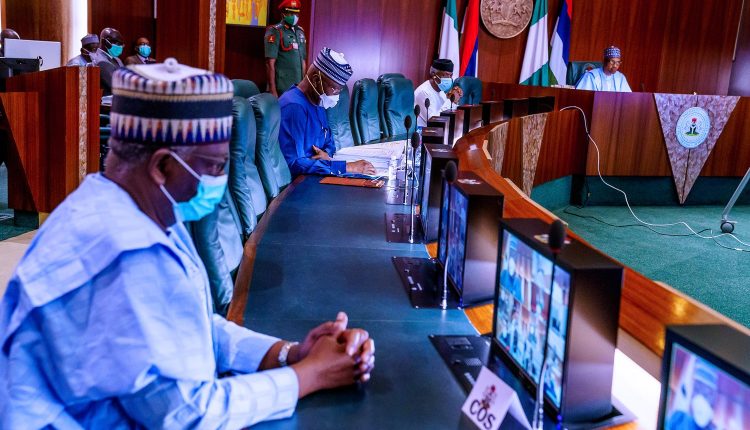Nigeria’s Federal Executive Council (FEC) has finally approved the revised 2020-2022 Medium Term Expenditure Framework, MTEF and an amended 2020 budget can now be submitted to the National Assembly for approval.
According to the document, the total federal spending of N10.52trn or US$27.2bn including government enterprises other than the NNPC and project tied loans is little changed from the original budget because of the sharp increase in concessional external financing. Nigeria has already secured a $3.4bn financing support from the IMF and it seeks more loans from others including World Bank.
There has been some revisions to the core assumptions for 2020, notably: average crude price of US$25/b (cut from US$57/b in the original because of market developments); average crude production of 1.94mbpd (reduced from 2.18mbpd in compliance with OPEC quota; and average exchange rate of N360 per US dollar (from N301 following the CBN’s rate adjustment in mid-March).
Firstly, while some analysts are comfortable with the new oil price assumption when we allow for the start of the reversal of lockdowns in some important jurisdictions, the use of the preferential exchange rate of N360 wsends mixed signals. This is so especially since the authorities have been heard to say that they are working towards the unification of rates. It could be justified by its use for imports of petroleum products. In addition, the 1.9mbd oil production target might prove to be overly optimistic given the chaotic global market and how slowly we might see a recovery if any. For instance, BP’s new global CEO said days ago the world might have already seen peak oil demand.
Secondly, the total expected revenue now stands at N5.16trn, compared with N8.42trn in the original budget. The Nigeria’s share of oil and non-oil revenue together came to N4.57trn in the original. The large residual balance was covered by some rather ambitious projected flows from the ten largest government enterprises (N990bn), signature bonuses/early renewals (N940bn) and the government’s share of balances in special accounts (N650bn). It is important also to note that the earlier projected N2.64trn for oil revenue (based upon US$57/b) is now unattainable. It is sensible to query the earlier figure for non-oil inflows since the original document (dating from December) assumed GDP growth of 2.9% this year.
Thirdly, the amended budget has a deficit of N5.37trn. The main financing components are the concessional funding already mentioned (N2.48trn at N360) and borrowing through the best efforts of the Debt Management Office, DMO (N1.59trn and now all will be raised domestically).
Fourthly, note that after the FEC meeting, the federal finance minister mentioned the drawdown of some already committed project loans and of some special accounts as well as privatization proceeds as other financing items. The detail is thin at this stage although it can be recalled that the original budget forecast financing flows of N250bn from asset sales and N330bn from tied project loans.
Finally, it is important to remember that analysts now project that Nigeria’s total external debt stock will likely rise to $36bn from $31bn while the country’s debt service burden is already in excess of 96% of independent revenues. They all point to a worsening fiscal environment for Nigeria.
Source: Businessdayng




